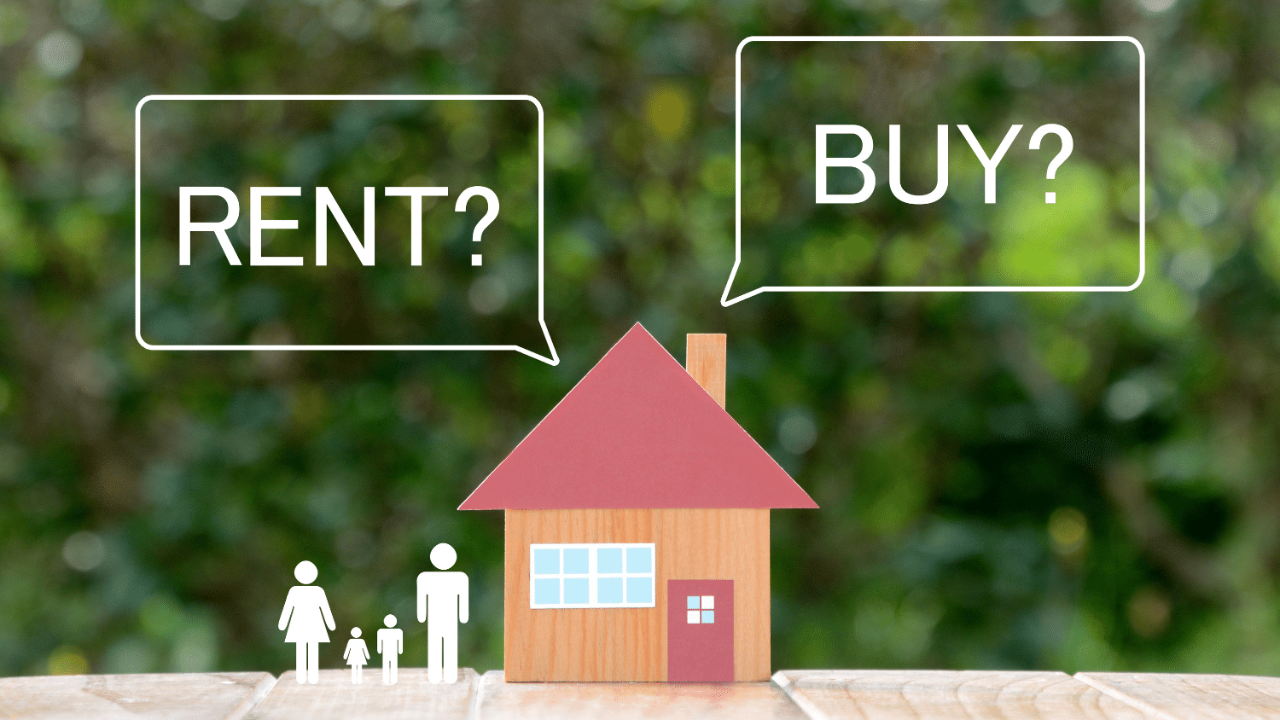Ever had that moment where you’re staring at your bank account, wondering if you should keep paying rent or finally take the plunge into homeownership? Yeah, me too. The question of renting versus buying is one of those classic life dilemmas, right up there with “Should I get a dog?” or “Is pineapple on pizza actually good?” (For the record, yes, it is.)
Deciding whether to rent or buy isn’t just about money; it’s about lifestyle, stability, and, frankly, your tolerance for fixing leaky sinks at 2 AM. There’s a lot of noise out there about this debate, but I’ll break it down based on real experiences, a few financial truths, and my own mistakes (because, trust me, I’ve made plenty). By the end of this, you’ll have a solid idea of what works best for you.
1. Key Financial Considerations
Alright, let’s talk numbers. When I first started thinking about buying a house, I thought, “I just need a down payment, and I’m set!” Ha! If only. Turns out, both renting and buying come with hidden costs that can sneak up on you faster than a surprise HOA fee.
Upfront Costs
Renting is usually cheaper to get into. You’ll likely need a security deposit, first month’s rent, and maybe a small application fee. On the flip side, buying a house? That’s a whole different beast. There’s the down payment, which can range from 5% to 20%, closing costs (typically 2-5% of the home price), and then fun extras like a home inspection and appraisal. I once knew a guy who saved just enough for the down payment, only to realize he couldn’t afford the closing costs—ouch.
Monthly Expenses
Renting keeps things predictable. You pay your rent, maybe renters’ insurance (which is usually cheap), and you’re done. Buying? Not so simple. You’ve got the mortgage, property taxes, homeowners insurance, and unexpected maintenance. Ever had a water heater die on you in winter? I have. That $1,200 replacement wasn’t exactly in my budget.
Long-Term Financial Impact
Here’s where buying starts to shine—equity. Every mortgage payment chips away at your loan, giving you ownership over time. Renting? No matter how long you stay, you walk away with nothing. But liquidity matters, too. If your money’s tied up in a house and an emergency hits, you can’t exactly sell your bathroom tile for quick cash.
2. Pros & Cons of Renting vs. Buying
Let’s get real. Renting and buying each have perks and drawbacks. I’ve been on both sides, and neither is perfect. Let’s break it down:
Renting: Pros
- Flexibility – Moving is a breeze (no selling, no waiting). If you hate commitment, renting is your best friend.
- Lower Costs – No maintenance expenses, and no scary property tax bills.
- Less Risk – Housing markets crash. Landlords deal with that, not you.
Renting: Cons
- No Equity – Every payment goes to your landlord, not toward something you own.
- No Customization – Want to paint your walls neon green? Probably not gonna happen.
- Rent Hikes – Your landlord can raise the rent whenever your lease is up.
Buying: Pros
- Equity & Wealth Building – Every payment gets you closer to full ownership.
- Stability – No sudden rent hikes or lease non-renewals.
- Freedom to Customize – Paint, renovate, knock down walls if you want.
Buying: Cons
- Upfront Costs – Down payment, closing costs, and moving expenses add up.
- Maintenance & Repairs – The broken fridge is your problem, not your landlord’s.
- Less Flexibility – Need to move? Selling takes time and money.
3. Who Should Rent?
If you’re someone who moves often, renting is a no-brainer. I once took a job in a new city, thinking I’d be there for years—then six months later, I got a way better offer elsewhere. If I had bought a house, I’d have been stuck dealing with selling or renting it out.
Renting is also the move if you don’t have a solid emergency fund. Home repairs pop up when you least expect them, and if you can’t afford a surprise $5,000 roof fix, homeownership might not be for you just yet.
4. Who Should Buy?
Buying makes sense if you’re planning to stay put for at least 5-7 years. That’s the sweet spot where equity starts to work in your favor. You also need a steady income and good credit—two things I didn’t fully appreciate until my mortgage lender laughed at my first loan application (true story).
Another thing to consider? Your lifestyle. If you love the idea of personalizing your space, buying will make you happier. No more asking permission to put up shelves or dealing with a landlord who takes weeks to fix a leaky faucet.
5. Financial Tools & Calculators
Before making a decision, run the numbers. A simple rent vs. buy calculator (plenty of free ones online) can help you see how long it would take for buying to be worth it. Also, don’t forget interest rates—they make a massive difference. A 3% mortgage rate vs. 7% can mean paying thousands more over time. I learned that the hard way when rates jumped right before I locked in my loan.
Conclusion
So, what’s better—renting or buying? The answer depends on you. If you crave flexibility, hate maintenance, and don’t want to be tied down, renting wins. But if you’re ready to plant roots, build equity, and don’t mind the occasional DIY repair, buying can be a great investment.
Before you decide, take a hard look at your finances, lifestyle, and future goals. And if you’ve been through this decision yourself, drop a comment—I’d love to hear what worked (or didn’t) for you!

Marie Johnson is a finance expert and the author of EasyFinanceHelp, where she provides practical insights on personal finance, budgeting, and smart money strategies. With a clear and straightforward approach, she helps readers make informed financial decisions with ease.

